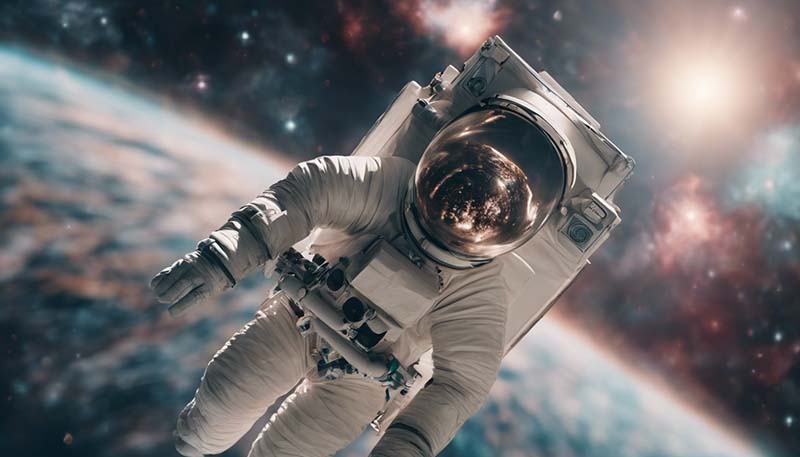The Hubble Space Telescope (HST),launched in 1990,has been one of the most significant achievements in the field of astronomy and space exploration.Named after the American astronomer Edwin Hubble,this powerful telescope has revolutionized our understanding of the universe by capturing breathtaking images and providing valuable insights into the nature of celestial objects.In this article,we will take a journey through the cosmos,exploring the incredible discoveries made by the Hubble Space Telescope and its impact on our understanding of the universe.
A Brief History of the Hubble Space Telescope
The concept of the Hubble Space Telescope dates back to the 1940s when scientists and engineers began to envision a telescope that could observe the universe from beyond the Earth's atmosphere.This would allow for clearer images and a better understanding of the cosmos,as the Earth's atmosphere can distort and absorb certain wavelengths of light.After decades of research,development,and planning,the Hubble Space Telescope was finally launched on April 24,1990,aboard the space shuttle Discovery.
The Hubble's Groundbreaking Discoveries
Since its launch,the Hubble Space Telescope has made numerous groundbreaking discoveries that have significantly advanced our understanding of the universe.Some of these discoveries include:
- Dark Energy: Hubble's observations of distant supernovae have provided evidence for the existence of dark energy,a mysterious force that is causing the expansion of the universe to accelerate.
- Galaxy Evolution: Hubble's deep-field images have revealed the formation and evolution of galaxies over billions of years,providing valuable insights into the history of the universe.
- Exoplanets: Hubble has played a crucial role in the discovery and characterization of exoplanets,planets that orbit stars other than our Sun.These findings have拓宽了我们对可能存在外星生命的地方的认识。
- Black Holes: Hubble's observations have provided evidence for the existence of supermassive black holes at the centers of galaxies,shedding light on the relationship between galaxies and their central black holes.
The Hubble's Impact on Astronomy and Society
The Hubble Space Telescope has not only made numerous scientific discoveries but has also had a profound impact on society and culture. The stunning images captured by Hubble have inspired countless people to take an interest in astronomy and space exploration.Additionally,the telescope has been used to study the Earth's atmosphere and has provided valuable data on climate change and ozone depletion.
The stunning images captured by Hubble have inspired countless people to take an interest in astronomy and space exploration.Additionally,the telescope has been used to study the Earth's atmosphere and has provided valuable data on climate change and ozone depletion.
Future of the Hubble Space Telescope
As the Hubble Space Telescope continues to operate,it remains an essential tool for astronomers and researchers around the world.However,its days are numbered,as the telescope is expected to be retired in the coming decades.Fortunately,the James Webb Space Telescope,set to launch in 2021,will take up the mantle as the premier observatory for studying the universe.The James Webb telescope will have even greater capabilities than Hubble,allowing us to delve deeper into the cosmos and uncover more of its secrets.
Conclusion
The Hubble Space Telescope has been an invaluable asset to the field of astronomy,providing us with a wealth of knowledge and stunning images of the cosmos.Its groundbreaking discoveries have reshaped our understanding of the universe and inspired a new generation of astronomers and space enthusiasts.As we look forward to the future,we can only imagine what further revelations the James Webb Space Telescope will bring as it continues the legacy of the Hubble Space Telescope.
Leave Your Comments